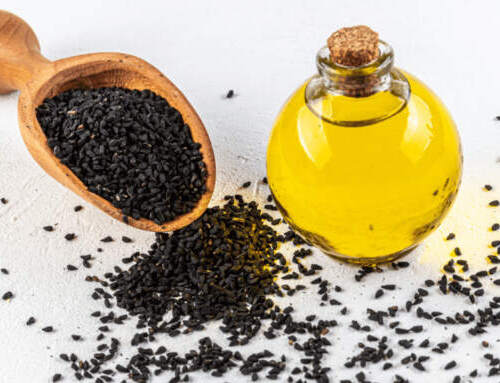Psoriasis is a chronic, immune-mediated disease that results in the overproduction of skin cells, leading to red, scaly patches on the skin, known as psoriasis flare-ups. These symptoms can be painful and disfiguring, impacting the quality of life of psoriasis patients. Research suggests that dietary behaviors play a crucial role in managing psoriasis symptoms and preventing flare-ups, with certain foods having the potential to either trigger inflammation or reduce it.
Types of Psoriasis
There are several types of psoriasis, including plaque psoriasis, guttate psoriasis, and psoriatic arthritis, each presenting distinct symptoms and requiring specific treatment approaches. The National Psoriasis Foundation emphasizes the role of a balanced diet in managing psoriasis symptoms and reducing the frequency and severity of flare-ups.
1. Plaque Psoriasis:
Plaque psoriasis is the most common form, characterized by raised, red patches covered with a silvery white buildup of dead skin cells, usually appearing on the elbows, knees, scalp, and lower back.
2. Guttate Psoriasis:
Guttate psoriasis manifests as small, dot-like lesions, often triggered by a streptococcal infection, typically affecting children and young adults.
3. Inverse Psoriasis:
Inverse psoriasis presents as red, smooth, and shiny lesions that appear in the armpits, groin, under the breasts, and in other skin folds.
4. Pustular Psoriasis:
Pustular psoriasis is characterized by white pustules surrounded by red skin, predominantly occurring on the hands or feet but can be generalized covering most of the body.
5. Erythrodermic Psoriasis:
Erythrodermic psoriasis is a severe and rare form that leads to widespread, fiery redness over most of the body, causing severe itching and pain.
6. Psoriatic Arthritis:
Psoriatic arthritis is a type of inflammatory arthritis that occurs in some patients with psoriasis, leading to joint pain, stiffness, and swelling.
7. Nail Psoriasis:
Nail psoriasis affects the nails, causing abnormalities such as pitting, discoloration, crumbling, and detachment of the nail from the nail bed.
8. Scalp Psoriasis:
Scalp psoriasis affects the scalp and can extend beyond the hairline, presenting as red, itchy areas with silvery-white scales.
Flare-ups can be triggered by a variety of factors including certain foods, stress, and environmental conditions. A healthy diet rich in fruits and vegetables, lean protein, healthy fats like omega-3 fatty acids found in fatty fish and olive oil, and whole grains can reduce inflammation and alleviate psoriasis symptoms. Conversely, consuming foods high in saturated and trans fats, such as red meat and processed foods, can increase inflammation and worsen psoriasis symptoms.
Individuals with gluten sensitivity or celiac disease may experience relief from psoriasis symptoms by adopting a gluten-free diet. Additionally, maintaining a low calorie diet and losing weight [Read more about losing weight] can also contribute to less severe psoriasis and better disease control. It’s crucial for people with psoriasis to consult with a registered dietitian to tailor dietary behaviors and make informed dietary changes, including the incorporation of anti-inflammatory foods and dietary supplements like fish oil and vitamin D, to manage this autoimmune disease effectively while avoiding potential psoriasis triggers like alcohol and high calorie, fried foods.
Importance of Diet in Managing Psoriasis:
A healthy diet is paramount for people with psoriasis. Eating foods rich in omega-3 fatty acids, such as fatty fish, can reduce inflammation and may help in treating psoriasis. On the contrary, foods high in saturated and trans fats, like red meat and processed foods, can increase inflammation, making psoriasis symptoms worse. Therefore, maintaining a balanced diet with anti-inflammatory foods is essential for disease control.
Dietary Modifications and Specific Diets:
The National Psoriasis Foundation recommends dietary changes and weight loss interventions for managing severe psoriasis. A gluten-free diet can be beneficial for those with gluten sensitivity or celiac disease, as it may lessen severe psoriasis symptoms. The Mediterranean diet, rich in fruits and vegetables, lean protein, healthy oils like olive oil, and whole grains, is another option due to its anti-inflammatory properties. Such dietary modifications, along with avoiding high calorie and fried foods, can aid in reducing inflammation and managing psoriasis flare-ups. [Psoriasis linked to 14 autoimmune diseases]
Role of Healthy Fats and Weight Loss:
Healthy fats, found in olive oil and fatty fish, have anti-inflammatory properties that can help in reducing chronic inflammation associated with psoriasis. Losing weight, particularly through a low calorie diet, can also alleviate psoriasis symptoms, as excess weight is known to worsen psoriasis symptoms and can lead to other chronic health conditions like heart disease.
Dietary Supplements and Lifestyle Changes:
Supplements like fish oil and vitamin D can support psoriasis treatment by reducing inflammation. However, it is crucial to consult a registered dietitian before incorporating any dietary supplements or making significant dietary changes. Additionally, lifestyle changes like limiting alcohol intake are also recommended, as drinking alcohol can be a psoriasis trigger and can interfere with prescription medications used for treating psoriasis.
Sample Psoriasis Diets
When creating a meal plan for managing psoriasis, it is crucial to focus on anti-inflammatory foods, healthy fats, lean proteins, and a variety of fruits and vegetables while avoiding foods that can trigger inflammation such as red meat, processed foods, and high-calorie foods. Here is a sample 3-day meal plan suitable for a psoriasis diet:
Day 1:
Breakfast:
– Oatmeal topped with fresh berries and a sprinkle of chia seeds.
– A glass of orange juice fortified with Vitamin D.
Lunch:
– Grilled chicken salad with mixed greens, cherry tomatoes, cucumbers, avocados, and a dressing made with olive oil and lemon juice.
– A serving of quinoa on the side.
Snack:
– A small handful of walnuts or almonds.
Dinner:
– Baked salmon with a side of steamed broccoli and asparagus.
– A serving of brown rice.
– A small bowl of mixed fruit for dessert.
Day 2:
Breakfast:
– Greek yogurt with sliced bananas and a drizzle of honey.
– A smoothie made with spinach, pineapple, and coconut water.
Lunch:
– Lentil soup with a side of whole-grain bread.
– A mixed berry salad.
Snack:
– Sliced apple with almond butter.
Dinner:
– Grilled turkey breast with a side of sweet potato mash and green beans.
– A small serving of mixed berries with a dollop of whipped cream.
Day 3:
Breakfast:
– Scrambled eggs with spinach and mushrooms.
– A slice of whole-grain toast.
– A glass of milk or a milk substitute like almond milk.
Lunch:
– Quinoa salad with mixed vegetables, feta cheese, and a vinaigrette dressing.
– A side of hummus with carrot sticks.
Snack:
– A small bowl of mixed nuts.
Dinner:
– Stir-fried tofu with mixed vegetables and a side of brown rice.
– A small serving of fresh pineapple for dessert.
Notes:
– Stay hydrated by drinking plenty of water throughout the day.
– Opt for cooking methods such as grilling, baking, or steaming instead of frying.
– Avoid alcohol and limit the intake of caffeinated beverages.
– Consult with a registered dietitian or a healthcare provider to tailor the meal plan according to individual dietary needs, preferences, and any specific dietary restrictions or allergies.
– Avoid foods that increase blood sugar levels like starchy carbs and sugar.
Avoid These Foods
Individuals with psoriasis should consider avoiding the following foods as they can potentially trigger inflammation and worsen psoriasis symptoms:
- Red Meat: High in saturated fats, red meat can increase inflammation and is linked to worsening psoriasis symptoms.
- Processed Foods: Often high in sugars, salts, and unhealthy fats, processed foods can exacerbate inflammation and psoriasis flare-ups.
- Dairy Products: Some people with psoriasis may find that dairy products, especially full-fat varieties, can trigger inflammation and skin issues.
- Refined Sugars: Foods high in refined sugars can lead to increased inflammation and should be limited.
- Alcohol: Those who drink alcohol can dehydrate the body and trigger psoriasis flare-ups, so it’s best to limit intake or avoid it altogether.
- Fried Foods: Typically high in trans fats, fried foods can increase inflammation and should be avoided.
- Nightshades: Some individuals with psoriasis may experience flare-ups when consuming nightshades like tomatoes, potatoes, peppers, and eggplants due to their solanine content.
- Gluten: For those with gluten sensitivity or celiac disease, consuming gluten can worsen psoriasis symptoms, so a gluten-free diet may be beneficial.
- Saturated and Trans Fats: Foods high in these fats can increase inflammation and are linked to more severe psoriasis symptoms.
- Spicy Foods: While not universally problematic, some people with psoriasis report that spicy foods can trigger skin irritation and flare-ups.
- Citrus Fruits: Citrus fruits can be irritating for some people with psoriasis, potentially leading to increased symptoms.
Remember, individual reactions to foods can vary, and it is essential to monitor one’s own responses to different foods and adjust the specific diet accordingly. Consulting with a registered dietitian or a healthcare provider can also help in tailoring a diet plan to individual needs and preferences.
Conclusion:
In conclusion, managing psoriasis involves more than just prescription medications; it requires a holistic approach that includes dietary modifications and healthy lifestyle choices. A diet rich in anti-inflammatory foods, healthy fats, and low in processed foods, saturated fat, and trans fats can contribute to less severe psoriasis and better overall health. Regular consultation with a registered dietitian and adherence to recommended dietary behaviors can aid in managing psoriasis symptoms and improving the quality of life for those living with this immune-mediated disease.




